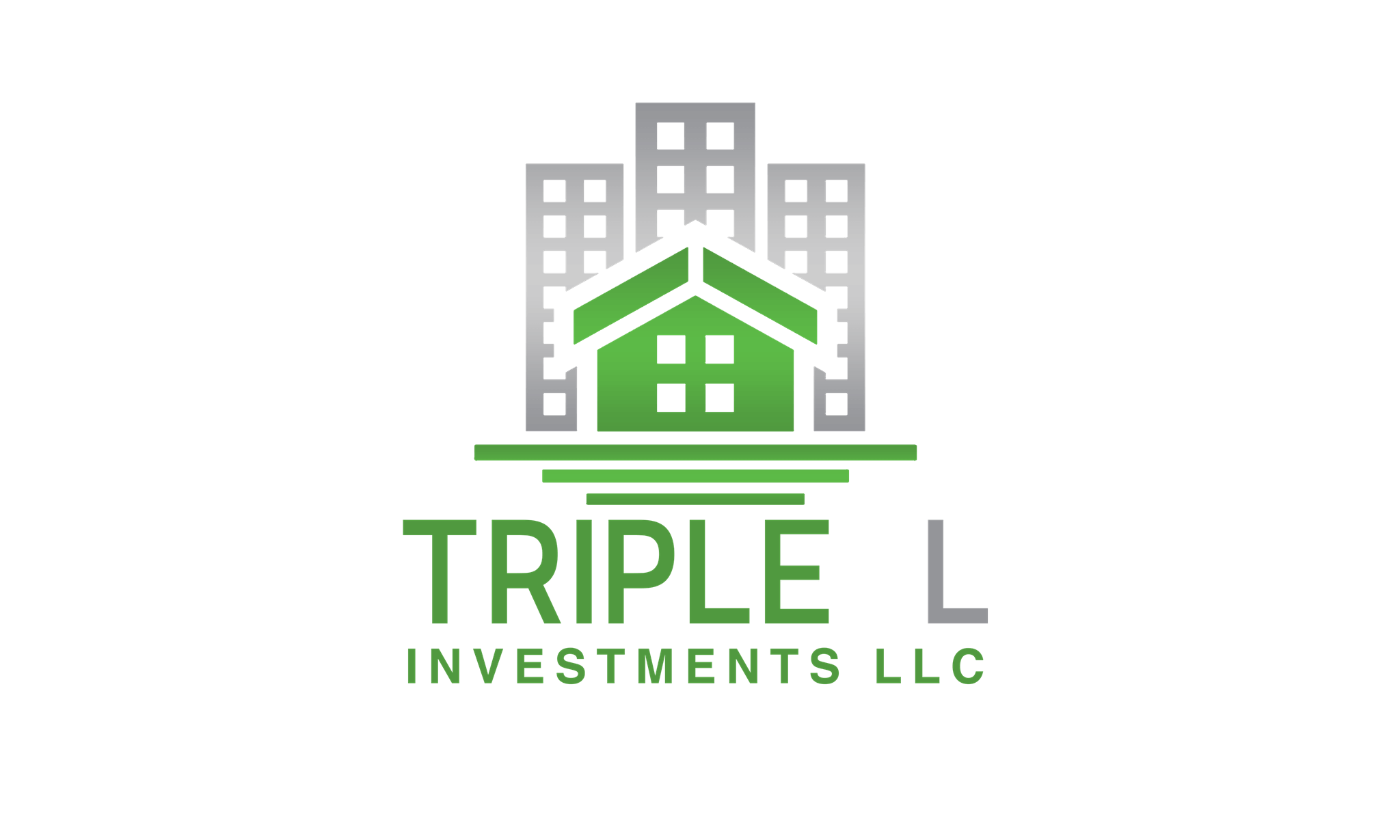How to Find Rent-to-Own Homes? Everything you Need to Know
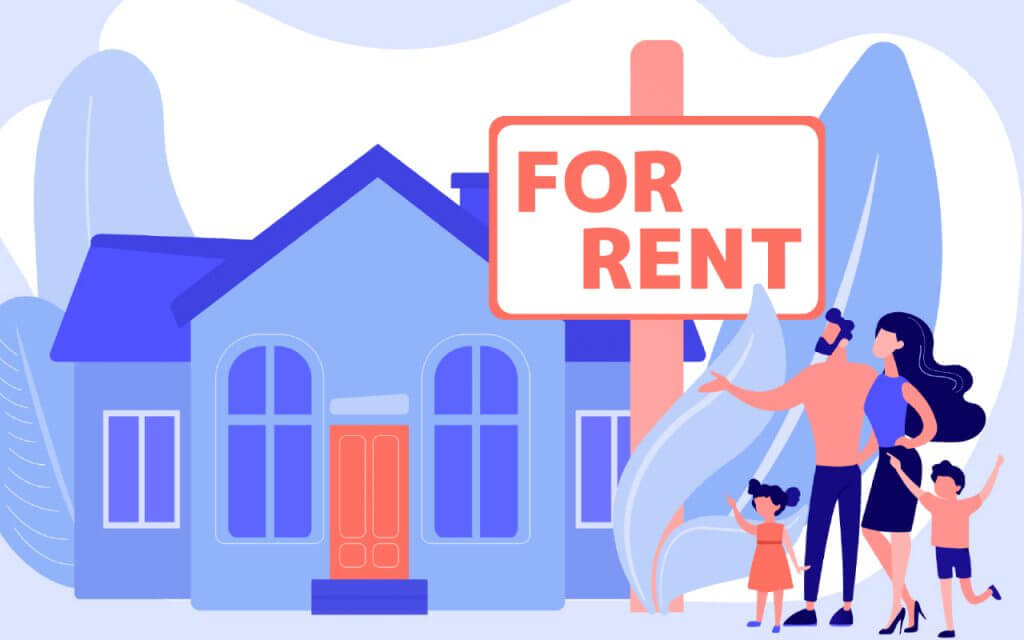
Did you know, according to recent data disclosed by Home Mortgage Disclosure Act (HMDA), 16.1% of all mortgage applications in the US were denied in 2020. This could be the result of many things but once your mortgage application is denied, do you think is there any other way of buying a home without having enough money? Yes! There’s a way in which you will rent and own the home at the same time. Rent-to-own homes are becoming increasingly popular in today’s real estate market due to many obvious reasons. These programs are contracts between a buyer and a seller in which the buyer rents the home for an initial period of time with an option to purchase it later on a pre-determined date. The renting party makes regular payments towards ownership until they have paid enough money to have clean equity of the property. There are several benefits of a rent-to-own contract. For instance, it provides individuals who can’t get an approved mortgage due to a low credit score or any other issues with the opportunity to become a homeowner. It also gives people who don’t have much cash upfront but have good credit and steady income another way to own their home. If you’re interested in buying a home through a rent-to-own program, the article covers everything from why you should buy rent-to-own homes to how to find-to-own homes. Why You Should Buy Rent-to-Own Homes? Rent-to-own homes are the combination of two contracts: lease purchase and lease option. Both of these programs are beneficial because they allow you to get into the real estate market without having a large cash down payment or being approved for a mortgage. These programs let you try out the house and neighborhood before you buy. You can make a small upfront and then make monthly payments with the rent until you have enough equity to buy the home. This can be a good way to be a homeowner if you have bad credit or lack funds for a down payment. Things to Consider Before Buying a Rent-to-Own Home Obligation to buy When going through a lease-purchase agreement, you must buy the home when the lease agreement ends. Otherwise, you not only lose a fortune of upfront money and monthly payments depositing in the down payment value but the homeowner can also file a legal case against you for leaving the property. High Rents In addition to the upfront fee of around 1-5%, the buyer in a rent-to-own home also has to pay higher rent as compared to the average in the neighborhood. This is because some of the portions of rent are going towards the down payment. Maintenance Costs In some agreements, the buyer has to offer the maintenance costs. This is another crucial thing to consider because maintenance costs may account for around 1-4% of the total home value every year. So, make sure about the maintenance costs before getting into any rent-to-own agreement. Lease-option Vs Lease-Purchase In both scenarios, the process of upfront, monthly payments, and down payments remain the same but in the lease option, you are not obligated to buy the home at the end of the contract. The lease option has an advantage and allows you to decide whether to buy the property or leave it due to personal reasons. However, according to the contract, you may lose the down payment and home equity if you choose to leave the property. In contrast, a lease-purchase contract puts an obligation to buy the house. If the buyer changes his mind and chooses to walk away when the contract is over, the equity, deposit, and down payment will be at risk along with the possibility of legal action against him. How to Find Rent-to-Own Homes? Finding Rent-to-own homes is quite different than finding a rental or typical home. However, we have listed some of the most practiced and practical ways you can find rent-to-own homes. Consult an Agent with Experience in Rent-to-Own Homes Once you have decided that rent-to-own is the most suitable option for you, you’ll need to find an agent who brings vast experience in this type of program. An agent who specializes in this field can help you negotiate a contract that’s suitable for your circumstances. In our wide experience of dealing with rent-to-own home sellers, we have observed that sellers don’t usually provide much assistance when dealing with buyers. They are always trying to catch huge amounts of upfronts and high monthly additional payments. And since rent-to-own programs differ from traditional real estate transactions. There are numerous terms and conditions only an experienced real estate agent can manage productively. Look For Pre-Foreclosure Homes One of the easiest and most effective ways of finding rent-to-own homes is to look for pre-foreclosure property. In this type of situation, the seller has the idea that the home might be exquisite by the bank as they don’t have enough finances to clear the home from the mortgage. And if the home goes into foreclosure, the homeowner will eventually lose a huge amount of money. For that reason, many homeowners try to sell their houses through a rent-to-own program before they get into any trouble. Therefore, you can take advantage of the scenario and find an incredible rent-to-own home with affordability. However, you’ll need to consult an agent with expertise in foreclosure and rent-to-own properties. Whether by using the network of your agent or by looking online on websites such as Foreclosures.com, You can find a decent home ready to go with a rent-to-own program. Find a Direct Rent-to-Own Home Seller There are innumerable homeowners looking to rent their homes while trying to earn some extra money. They may not be interested in a rent-to-own program but since you start living in the house, your agent may float them to sign a rent-to-own deal. Sometimes sellers, who are facing hard times selling their property, eventually agree to sell rent-to-own if the agent approaches them cleverly. Additionally, you can also
How Much do You Lose Selling a House As-Is?
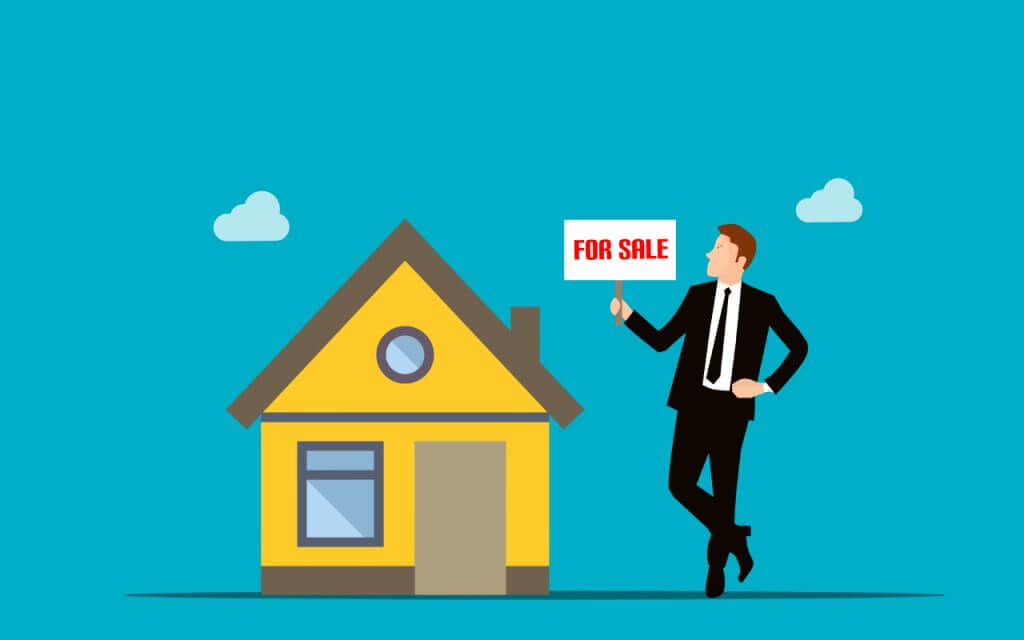
In most markets, selling your home as-is is not the best strategy. But, in some circumstances, it could make sense. If the property needs significant renovations to be attractive for the average buyer or you simply don’t have time to list and sell it then selling your home as-is seems to be the best strategy. There can be numerous pros and cons to each approach, but with so many different opinions out there, it can be challenging to figure out what’s best for your situation. Both scenarios involve expenses related to real estate agents and third-party services. However, if you sell the house as-is, there will be no possible buyer inspections or negotiations on fixing up the place to make it more appealing before putting it on the market. For instance, in a typical home sale scenario, a buyer might request $2,000 credit at the time of inspection, when the property inspector finds out a serious plumbing issue. On the contrary, when selling a home as-is, you are not accountable to pay for any repairs. Although there are not any specific rules to know the exact amount of money you lose when selling a house as-is, still some of our experts at NEA Rental Properties disclosed some numbers by evaluating several successful deals made recently. So, if you don’t feel like spending tens of thousands of dollars on renovations before putting your house up for sale again – read on for how much you can expect to lose when selling your house as-is… Pros of Selling a House As-Is One of the biggest benefits of selling your house as-is is that you can get top dollar for your home. By taking care of all the cosmetic issues, you can quickly sell your house and make a large profit. It is important to note that this does not mean that your house must look perfect when it hits the market. But you should still take care of any minor repairs and add cosmetic touches if needed. If you do so, you will have a very successful sale that comes with little to no hassle. Without regular upkeep, your home will start to deteriorate quickly and could eventually lead to water damage and other harmful problems. By following all the necessary steps and maintaining your property, your home will surely sell for top dollar in no time at all! Another benefit is that you can turn your home into quick cash. If you have equity in the property, this is an easy way to turn your home into cash. You can also sell your house before repairs are needed, saving both time and money. Cons of Selling a Home As-is When you sell your home an as-is, there is a greater chance that you will receive less money than if the house is in great condition. You might also have to wait a long time for buyers or pay higher closing costs sometimes. If you want to lower your expenses and avoid delays, it’s best to invest in a professional home inspection before you list your home. Another problem with as-is sales is that they can be difficult to sell. Not only do you have to compete with other homes in the same price range, but you also have to compete with more attractive offers. If your home has a lot of defects, potential buyers might not want to take a risk on it. Factors Evaluating “How Much Do You Lose Selling a House As-Is?” Before getting into any other discussion, let’s dive directly into some of the most crucial factors impacting the amount of money you lose when selling your house As-is. The Type of Buyer Most people have an idea of which type of buyer they are dealing with before they put the house on the market, but there are some buyers who try to take advantage of sellers. For instance, first-time or new home buyers are usually looking for a great deal and willing to negotiate with the seller. They will observe the property from every corner, and since they don’t know the exact price required for repairing the house, they end up asking for considerable low biddings. Besides, more experienced buyers and real estate firms are more likely to be knowledgeable about real estate and able to meet the home repairs with limited bills. They will handle the overall transactions (including closing costs) more smoothly and you will get the deal done swiftly. Usually, according to the data driven by most of our deals, home sellers can expect to get 75% to 95% of the total home value (AVR) depending on their home condition. Let’s compare the two scenarios of typical and As-Is home sales; Selling a Home As-Is A Real estate firm and cash buyer offer to buy a home that required $30,000 for repairs. The buyer is looking to live in the house after closing while the real estate firm is offering to pay closing costs. As the seller intends to sell quickly and also considering the chunk of closing costs. The home is being sold to a real estate firm that offers to pay 80% of the total home value (after repairs) i.e., $240,000. Selling a Home After Repairs The seller spends 10% on his home repairs, i.e., $30,000 before selling it for $300,000. In this case, the cash buyer buys the home to live in after closing. The seller also pays $24,000 as closing costs, which is 8% of the total home valuation. After deducting the number of home repairs and closing costs, the seller gets $246,000 in his pocket. Results When the home seller offered to sell his house to a real estate firm by proceeding through As-is, he got a loss of $6,000 i.e., 2% of the sales price. The Condition of Home The condition of a home can considerably impact the valuation of your home, but it’s often one of the least discussed. If your home looks like it’s been
9 Benefits Of Buying A Home: Rent To Own
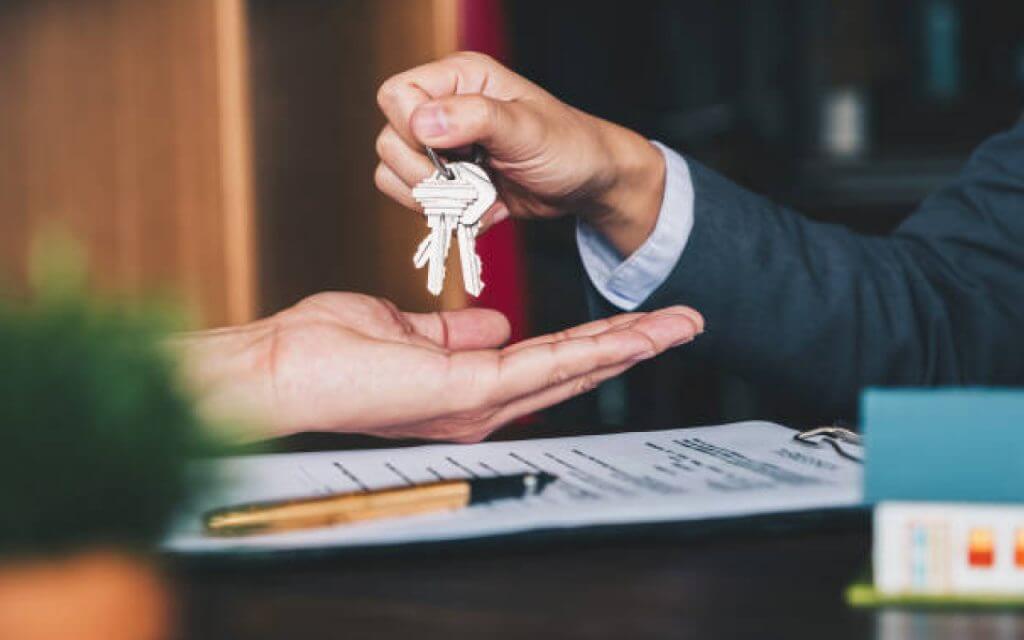
Purchasing a home is a significant accomplishment. While it may appear difficult at times, the numerous advantages of having your own home make it all worthwhile. If the cost of purchasing a new house is prohibitively expensive for you, you might look for a licensed real estate firm like Nea Rental Properties who offers a rent-to-own mortgage plan. This one-of-a-kind contract allows you to apply a portion of your lease payment toward the purchase of the home. Does this idea appeal to you? The rent-to-own arrangement allows you to buy the property after the rent-to-own tenure, which can range from a few months to a few years, or to walk away if you don’t like the residence. What Is The Difference Between Renting And Buying A House? Renting to own is a hybrid approach to house ownership in which all or a portion of a lease payment is used to create equity in a home over time. It is typically a method in which the owner of a home permits a renter to accumulate equity without the need for a down payment or a mortgage. Benefits Of Renting-to-Own A rent-to-own property is an excellent option for buyers or tenants who are unable to obtain house loans due to poor credit. A rent-to-own mortgage provides you with the chance and time to rebuild your credit. You can use your rent-stay time to plan your funds for debt repayment. This, in turn, will assist you in correcting and improving your credit ratings. You do not have to buy the house if it does not appeal to you. The rent-to-own contract’s adaptability is a desired feature. You have some time to test the house before deciding whether to buy it or leave it at the end of the agreement. If you are unable to purchase a property, you might begin by renting one and eventually become the owner when the lease expires. This allows you to save money for the down payment on a house. Alternatively, if you decide to walk away when the contract expires, you can use the money to buy a different home entirely. Rent-to-own systems can be an excellent option if you prefer to sit back and enjoy the game. You have the opportunity to fine-tune your market knowledge. You can continue to live on rent if property prices are high. You can look forward to purchasing a home later on, when prices have dropped and stabilized. As a result, this structure gives you enough leeway to find your ideal home. Renting may appear to be the greatest option in the near term, but here are five compelling reasons why having your own home can provide significant value for you over time. Advantages Of Buying A Home No Landlord Problems When you own your own home, you have complete control. You do not have to deal with a landlord; whether it is little maintenance or a total remodel of your entire property, renting has some pains. Water, power, maintenance, and practically everything else is provided by the landlord. Living security is assured Your family’s stability when renting is dependent on the decisions of a landlord, who may suddenly decide they no longer wish to rent out their property. Moving is expensive, unpleasant, and can be emotionally draining, especially if you have to relocate unexpectedly. When you own your own house, you can rest, easy knowing that you are in charge. That is invaluable. There is no uncertainty There is no worry and anxiety associated with the potential of the landlord prematurely terminating the lease arrangement. Furthermore, there is no need to renew the lease agreement every year and re-negotiate the rent. You will gain equity. Your equity is the amount of money you own in relation to the value of the property. It increases when the market value of your home rises (or when you make extra payments on your mortgage). When you own a property, you can potentially leverage your equity and access it by redrawing your loan, borrowing on top of your equity with an additional advance, or refinancing your mortgage. These monies can subsequently be utilized for a variety of purposes, such as home renovations, the purchase of a new car, or even a memorable vacation. You have more control over costs When you rent, your landlord may decide to raise your rent, leaving you with no choice except to accept it or face additional moving expenses. While property ownership comes with a variety of expenses, such as mortgage payments and interest rates, these are unlikely to grow significantly suddenly. In other cases, you may even be able to manage them, such as by selecting a fixed-rate house loan. You can design your dream home. Landlords are frequently reluctant to allow renters to renovate their home, even if you believe you will improve it. When you own your own home, you have unlimited creative freedom – you can renovate the bathroom in a jungle theme or paint the walls in incredibly vivid colors without fear of being judged. Home upgrades often boost the value of a property, therefore if it is your home, every dollar that increases in worth will be money in your pocket when you sell! Improvement of your Credit Score One of the most crucial elements influencing a person’s credit score is the duration of credit history. An excellent strategy for raising a credit score is to increase the average term of credit accounts, which may be accomplished by buying a home. Because mortgages normally last 15 or 30 years, having a mortgage on your credit history is an excellent strategy to increase the average term of your credit accounts. In addition to increasing the average length of credit accounts, paying your mortgage on time each month demonstrates that you’re a responsible borrower, which not only improves your credit score but also increases your chances of approval
How will you buy my home?: A Comprehensive Guide For Home Sellers
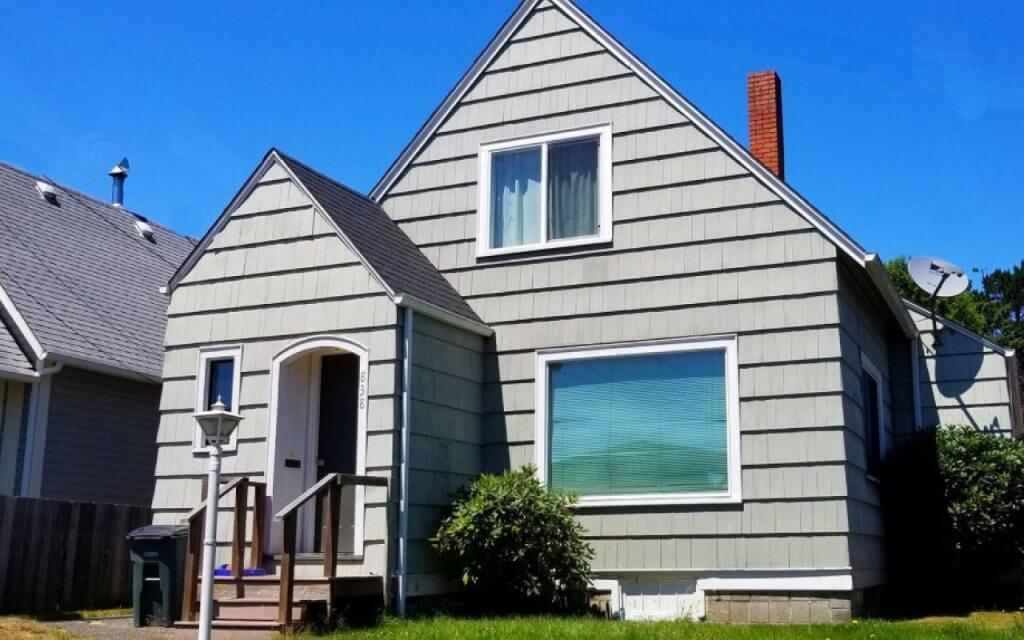
The vast majority of residential real estate financing transactions adhere to a predictable pattern. A lending institution funds the transaction after the seller finds a willing buyer with the necessary income, employment history, and credit score to qualify for a mortgage. But what if conventional financing is unavailable and both the buyer and seller desire to sell privately? They employ a technique known as owner financing. As the name implies, the person selling the house pays for the acquisition. Owner financing occurs when the owner of a property for sale provides the buyer with partial or full finance immediately after the buyer makes a down payment. The seller assumes the role of the bank or lender in a standard mortgage. You’re entering into a contract in which the buyer pays you monthly rather than a lump sum from a traditional lender. Example Of Owner Financing Assume a seller promotes a house for $145,000 with owner financing and the buyer and seller reach an agreement on a price. The seller requests a $29,000 down payment as a 20% deposit. The vendor offers to finance the remaining $116,000 over 20 years at a ten percent fixed interest rate with a six-year balloon payment.” Types Of Owner Financing Owner financing comes in a variety of forms. Each has its own set of benefits and drawbacks: Second mortgage If the buyer is unable to acquire a conventional mortgage for the full purchase price of the home, the seller may issue a second mortgage to cover the shortfall. The second mortgage is frequently for a shorter term and at a higher interest rate than the first loan obtained from the lender. If you have a shorter term, you must be prepared to pay it off when the time comes; otherwise, you will be forced to refinance. Land Contract The homebuyer makes agreed-upon payments to the seller under a land contract. When the payment plan is completed, the buyer obtains the deed to the property. Because a land contract usually does not include a bank or mortgage provider, it can be a faster way to secure home financing. However, there is a major risk because many states allow sellers to foreclose if you miss a payment. Lease-purchase A lease-purchase arrangement obligates the homebuyer to rent the property from the owner for a specified period. The buyer gets the option to purchase the home at a predetermined price at the end of that period. Typically, the buyer must make an initial deposit before moving in, and the money is forfeited if the home is not purchased. If you are the buyer in this situation, you should negotiate the option price and make it contingent on financing, clear title, and other conditions, just as you would if you were buying a home the traditional way. Wraparound Mortgage Wraparound financing is provided to home sellers who owe money on their property. In this situation, the owner agrees to sell the property to the buyer in exchange for a down payment and monthly loan payments. The funds will be used to pay off the seller’s existing mortgage. The buyer frequently pays a higher interest rate than the seller’s current mortgage. If the seller defaults on the underlying loan, you could lose the house. This agreement requires the assistance of an experienced attorney. How To Do Owner Financing When Selling A House Find a Qualified Buyer It is not difficult to locate a buyer looking for owner financing. If you’re confident you want to offer this incentive, you can include it in your listing agreement, but the buyer will most likely contact you with the suggestion. Assure that a prospective buyer completes a loan application and thoroughly validates the facts contained within. Conduct a credit check. Check references and validate work and earnings. Do everything a conventional bank does before authorizing a loan. You can avoid all of these problems by using Nea Rental Properties. Nea Rental Properties is a Northeast Arkansas real estate investment firm specializing in the acquisition, development, and management of single-family, multifamily, and commercial properties in Jonesboro, Paragould, and surrounding communities. If you need to sell your house, we would be delighted to make you an offer (this is where owner financing comes in). Please let us know if you need to rent a property; we rarely have vacancies, and when we do, they go quickly. We buy houses in all shapes and sizes and under all conditions. Coming to an Agreement You are still entitled to and should seek, a down payment, just like a buyer with a traditional mortgage. The difference is that you have greater leeway in negotiating the amount because you are not bound by government or banking institution rules. It’s all up to you, and it might be determined by how much money you need to take out of the sale to comfortably move on to a new residence. By accepting owner financing, you’re doing the buyer a huge favor, especially if you agree to accept less than 10% down, so feel free to ask for a somewhat higher interest rate than a traditional lender would require. Because you don’t want to be collecting on the sale of your property for the rest of your life, owner financing is usually short-term. Owner financing is often for five years, with interest amortized over 15 or 30 years but with a balloon payment that puts the loan due in full in a considerably shorter period of time. When the balloon payment comes due at the end of your loan, your buyer will refinance the property to pay you off. If you wish to use such terms, make sure it is appropriately specified in your loan documents. When you conclude an owner financing transaction with Nea Rental Properties, you can reach an agreement with us. We’ll make you an offer, and if you don’t like it, we’ll bargain until we reach
Sell Me Your House Owner-financed: A Comprehensive Guide For Home Sellers

The majority of residential real estate financing transactions follow a consistent pattern. The seller finds a willing buyer with the appropriate income, employment history, and credit score to qualify for a mortgage, and the transaction is funded by a lending institution. But what if standard financing is unavailable and the buyer and seller prefer to sell privately? They use a method called owner financing. The individual selling the house pays for the purchase, as the term implies. Owner financing occurs when the owner of a property for sale gives partial or whole financing to the buyer immediately after the buyer pays a down payment. In a typical mortgage, the seller takes over the function of the bank or lender. You’re entering into a contract in which the buyer pays you monthly rather than handing you a large quantity of money from a traditional lender. Example Of Owner Financing Assume a seller markets a house for sale with owner financing for $145,000 and the buyer and seller agree on a price. The seller demands a $29,000 down payment as a 20 percent down payment. The vendor offers to finance the remaining $116,000 at a ten percent fixed interest rate for 20 years, with a six-year balloon payment. Types Of Owner Financing There are numerous types of owner financing. Each has its own set of advantages and disadvantages: Second mortgage If the buyer is unable to obtain a regular mortgage for the full purchase price of the home, the seller may issue a second mortgage to make up the difference. The second mortgage is often for a shorter duration and at a higher interest rate than the initial mortgage obtained from the lender. With a shorter term, you must be ready to pay it off when the time comes; else, you will be compelled to refinance. Land Contract In a land contract arrangement, the homebuyer makes agreed-upon payments to the seller. The buyer receives the deed to the property once the payment plan is completed. Because a land contract normally does not include a bank or mortgage provider, it can be a significantly speedier alternative to getting home finance. However, because many states allow sellers to foreclose if you miss a payment, there is a significant risk. Lease-purchase A lease-purchase agreement requires the homebuyer to rent the property from the owner for a set length of time. At the end of that period, the buyer has the option to purchase the home at a predetermined price. Typically, the buyer must make an initial deposit before moving in and will forfeit the money if they do not purchase the home. If you are the buyer, in this case, negotiate the option price and make it subject to financing, clear title, and other stipulations, just like you would if you were buying a home the traditional way. Wraparound Mortgage Wraparound financing is available to home sellers who still owe money on their houses. In this case, the owner agrees to sell the house to the buyer in exchange for a down payment and monthly loan payments to the owner. The payments are used to pay down the seller’s current mortgage. Frequently, the buyer pays a greater interest rate than the seller’s current mortgage. The danger is that you will lose the home if the seller defaults on the underlying loan. It is critical to have an experienced attorney on your side for this agreement. How To Do Owner Financing When Selling A House Locate a Qualified Buyer It is not difficult to find a buyer who is searching for owner financing. You can include it in your listing agreement if you’re certain you want to give this enticement, but the buyer will most likely approach you with the proposal. Make certain that a prospective buyer fills out a loan application and thoroughly checks the information included within. Perform a credit check. Check references and validate work and earnings. Before approving a loan, do everything a regular bank does. With Nea Rental Properties, you can avoid all of these headaches. Nea Rental Properties is a Northeast Arkansas real estate investment firm that specializes in the acquisition, development, and management of single-family, multifamily, and commercial properties in Jonesboro, Paragould, and other nearby towns. If you need to sell your property, we would appreciate the opportunity to make you an offer (this is where owner financing comes in). If you need to rent a property, please let us know; we rarely have vacancies, and when we do, they go quickly. We buy houses in all shapes and sizes and under all circumstances. Reaching an Agreement You are still entitled to and should request a down payment, just as a buyer would with a standard mortgage. The distinction is that you have more freedom to negotiate the amount without being constrained by government or banking institution requirements. It’s all up to you, and it may be determined by how much money you need to take out of the deal to comfortably move on to a new property. You’re doing the buyer a tremendous favor by taking owner financing, especially if you agree to accept less than 10% down, so feel free to ask for a somewhat higher interest rate than a traditional lender would require. You don’t want to be collecting on your property sale for the rest of your life, therefore owner financing is usually short-term. Owner financing is usually for five years, with interest amortized over 15 or 30 years, but with a balloon payment that essentially brings the debt due in full in a much shorter amount of time. When the balloon payment is due at the end of your loan arrangement, your buyer will refinance the property to pay you off. If you choose to use terminology like this, make sure they are properly stated in your loan documentation. You can strike an agreement with us when you complete an
Why rent to own is a better option

Why rent to own a home? Rent to own is a flexible option for those who want to own a house, but their financial situation does not support their dreams. Their bad credit does not make them eligible for a mortgage. They also fail to arrange the finances through other means. You have two options with a rent-to-own agreement: Lease option Lease purchase Lease option The lease option is a more flexible choice. You enter into this agreement by making a non-refundable downpayment. Then you make periodic rental payments. Any additional amount you pay in monthly rentals adds up to home credit. With the lease option, you have the choice to buy the house at the end of the lease term. It is not mandatory. But if you can’t manage to buy the house, you lose the downpayment and home credit. Lease purchase Buying the house at the agreed date is obligatory if you sign a lease-purchase. You only go with this option if you are sure that you can arrange finances at the due date. In case of failure to comply with terms and conditions, the landlord may sue you for damages. Either way, the tenant and landlord must decide a few things in advance. First is the property’s final price at the time of acquisition by the tenant. It can be agreed upon in advance or decided at a specific time. The agreement must also stipulate the procedure to determine the price in future. It must also mention whether the tenant will acquire the place in its existing condition or with an upgrade. What are the benefits of renting to own? It is a highly beneficial option for those who want to own a house but don’t have money to pay for it. Can’t qualify for a mortgage You need a good credit score to qualify for a traditional mortgage. A low credit score makes you a riskier venture for the lenders, who may deny you the credit facility. Several factors combine to make up your credit score. These include your payment history, available credit limit, credit mix, etc. If you have bad credit, it shakes the confidence of lenders. Those who want to buy a house but bad credit proves the hurdle should explore the rent-to-own a home option. It enables you to rent a place before eventually buying it. Like a house but can’t buy it You may like a house, but your finances don’t allow you to buy it. You also know that if you missed this opportunity, you might not find such a lavishing house in a comfortable neighborhood again. In such a scenario, rent to own a home is the best possible option. Under this option, you rent a house with an agreement to buy it at a specific time in future. It prevents the seller from selling the home. It also gives you the time to arrange the finances. Trying out the neighborhood before purchasing a house Rent to own a house is also the best option for those unfamiliar with an area. They don’t know the neighborhood and are unsure whether they will be comfortable in this environment. It gives them a chance to occupy the house on a trial basis. If they find the place suitable, they may make it a permanent residence. No need to move out frequently You develop a bond with the place where you live for some time. When you leave that house, a feeling of loss overwhelms you. You also lose the friendships you make during your stay at a place. It is also an overwhelming task to move your belongings too frequently. You may damage them during the shifting process. When you move to a new place, it needs time to settle down and get back to normality. You may fail to feel at home in that place. It impacts your productivity and makes things annoying. Rent to own a house is the solution to all these problems. With an agreement to buy the house in future, you can secure your favorite place. Best tips for renting to own a house Before you sign a rent-to-own a house agreement, you need to ensure the following: Lease option vs lease purchase If you are unsure whether you can buy the house at the end of the lease term or not, go with the lease option. A lease purchase makes it legally binding to buy the house at the agreed date. Otherwise, the owner may sue you for failing to fulfill the agreement. Read the contract thoroughly Before signing the agreement, it is compulsory to read the contract meticulously. Renting to own a house is vastly different from simply renting a place. You must understand every term and condition and agree to them consciously. Get a home inspection It is also a reasonable option. When you get a home inspected by an expert, it ensures that there are no irreversible flaws in the building. The owner of the house bears the cost of this inspection. If you are to own a place eventually, you need to ensure that it will not cost you a fortune in repair and maintenance. Lock in the price The prices of property mostly go up with time. Rent to own a house gives you the option to lock the price. It enables you to buy the place at a more favorable price, even if the rates go up in the market. Alternatively, you can always walk away without penalty if the prices go down. But you will lose the downpayment and any extra rent you paid as home credit. Repair and maintenance You need to have a clear understanding of the terms and conditions. The agreement must explicitly state who will
How to get a home with bad credit
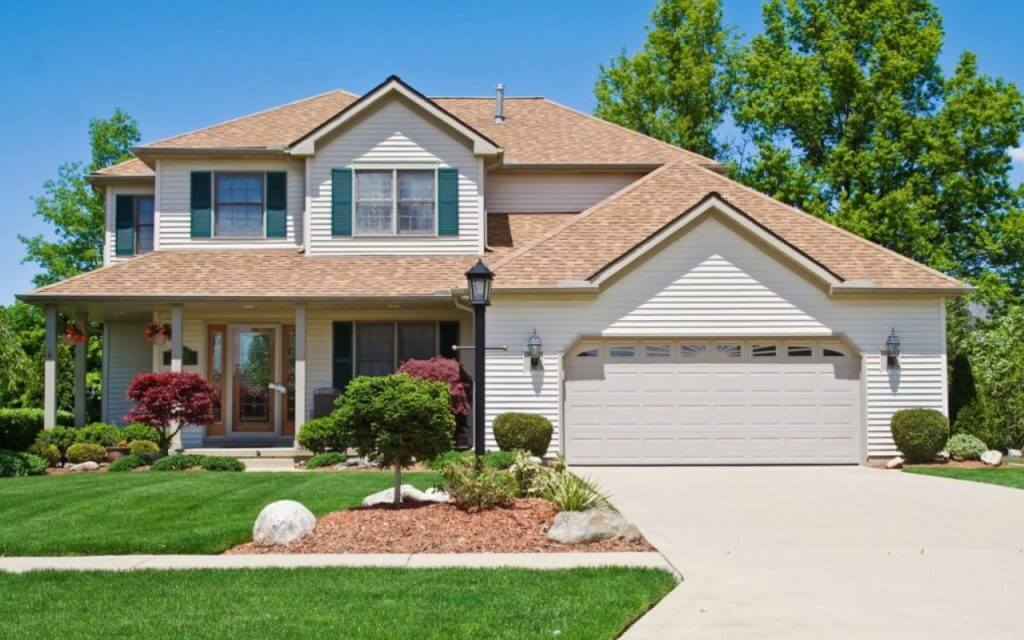
What is bad credit? Bad credit means your credit score is lower than the lender’s minimum threshold. Generally, this score ranges between 300-800 in the case of a mortgage. If your credit score is on the lower side of this range, it affects your ability to secure a mortgage. Your credit score also affects the interest on the mortgage. A lower credit score means your ability to repay a debt is not guaranteed. As a result, a lender charges you a higher interest rate to secure itself against a possible default. What factors impact your credit score? Several factors influence your credit score. Lending companies analyze these indicators to assess your ability to repay a loan. These include: Credit utilization ratio The credit utilization ratio shows how much credit you have availed from the total credit limit available. You are in a difficult financial position if you have utilized a higher percentage. In such a scenario, the lending companies feel reluctant to extend their services. Or they will charge you a higher interest rate as compensation for the higher risk. Payment history Your payment history also plays a crucial role in securing a loan. If you pay bills in due time, it improves your credit score. Late payments negatively impact the credit score and impede your ability to get a loan on favorable terms. You must pay the minimum amount required if you can’t pay the whole amount at the due date. This way, it will not reflect as a missed payment. Credit history length The average age of your credit accounts influences your credit score. Lenders analyze the age of your oldest and newest credit accounts. If you have a long credit history, it vouches for your ability to pay back loans. A sustained credit history improves your credit score. It makes it easier for lenders to extend a loan facility. However, if you have defaulted on several accounts in the past, it pushes your credit score down. It makes a mortgage expensive for you. New credit accounts If you are going to apply for a mortgage soon, don’t open a new line of credit. It negatively impacts your credit score. Also, don’t close an established credit line. When you shut down an existing credit account, it reduces the available credit. It is terrible for your financial outlook. Also, don’t use too much credit in a short time. It indicates that you are cash-strapped and financially vulnerable. Try to limit your expenses or get some loan from your friends. When applying for a new credit account, the lender looks into your credit file. It wants to ensure that you can pay back in due time. This evaluation appears as a hard inquiry in your record. A higher number of hard inquiries negatively impacts your credit score. Credit mix The credit mix indicates what kind of credit accounts you have. It shows your ability to accommodate different credit lines. It reflects positively on your credit score if you have a diverse portfolio. How to buy a house with bad credit? If you have a bad credit score, it makes it challenging to buy a house. But you are not entirely out of options. Shop around Not all banks have the same eligibility criteria for extending a loan facility. Don’t be discouraged if multiple banks show you the door. Keep looking around and getting information. Eventually, you will find one that offers you a loan to buy a house at a favorable interest rate. Lenders other than banks If no bank accepts your application for a loan due to a poor credit score, you can look for lenders other than banks. There are independent companies who may entertain your application despite all the reservations. Find a co-signer If nobody entertains your application for a mortgage, a co-signer can help you get through this. A family member with a good credit score can become your co-signer. A co-signer takes complete responsibility for paying back a loan if the primary borrower defaults. He is also responsible for paying the missed instalments. It gives assurance to the lender and helps you secure a loan to buy a house. Owner financing Owner financing is another viable option to buy a house in case of bad credit. You don’t need to rely on a traditional mortgage. Instead, the owner finances the buyer at a higher interest rate than the market. When you buy a house using owner financing, you make a down payment and pay the remaining amount over the agreed time. It is the fastest and easiest way to meet your financing needs for buying a house. However, it is more expensive than traditional borrowing due to a higher risk to the lender. In this type of financing, the lender neither considers your credit score nor performs any background check. Owner financing can prove the ultimate solution if you have explored all other options and failed in securing a mortgage. How to improve bad credit before applying for a mortgage? There are several steps that you can take to improve your credit score. It can help you secure an affordable mortgage rather quickly. Below are the measures that can prove consequential in improving your credit score: Review credit report The first step you can take is to review your credit report. You can access it through annualcreditreport.com. It helps you identify the errors and omissions in your credit report. There could be an open loan that you already have settled or an incorrect late payment. Removing these errors can give your credit score a positive push. Stay within the budget Make a budget for yourself and stay within limits. It will help you control your spending, preventing the need for any new credit facility. It boosts your credit score
